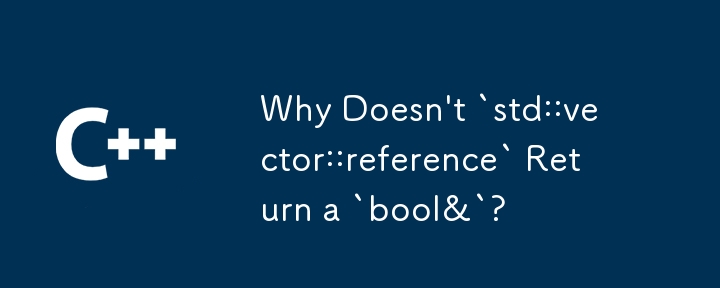

Why vector
In C , the std::vector
The Issue
In the provided example, a function callIfToggled is used to toggle a bool value and call a method on a struct. When attempting to pass a reference to an element of a std::vector
The Reason
Within the bool vector specialization, vector
Solutions
Example (Vector of Char):
#include <vector>
struct A
{
void foo() {}
};
template<typename T>
void callIfToggled(char v1, char &v2, T &t)
{
if (v1 != v2)
{
v2 = v1;
t.foo();
}
}
int main()
{
std::vector<char> v = { false, true, false };
const char f = false;
A a;
callIfToggled(f, v[0], a);
callIfToggled(f, v[1], a);
callIfToggled(f, v[2], a);
}The above is the detailed content of Why Doesn't `std::vector::reference` Return a `bool&`?. For more information, please follow other related articles on the PHP Chinese website!




